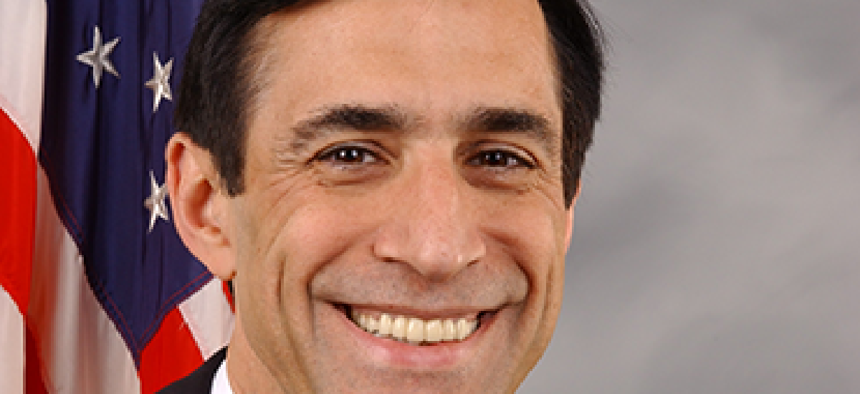Issa turns again to IT reforms

Resuming an effort he started last year, Darrell Issa is pushing legislation centered on improvements to technology acquisition.

Rep. Darrell Issa has resumed his efforts to improve federal IT investments.
Rep. Darrell Issa (R-Calif.) has resumed his push to bring improvements to IT procurement into federal agencies -- an effort he started with a draft legislative proposal in 2012.
“We have a choice to make: adapt to the changing times, or waste more taxpayer dollars on obsolete and duplicative systems that don’t work,” Issa, chairman of the House Oversight and Government Reform Committee, said in his opening remarks at a Jan. 22 hearing. “It is time to bring the IT revolution to the federal government.”
The committee’s hearing examined the IT procurement process. It also restarted discussions on fine-tuning IT investment strategy and how agencies go about purchasing them. The committee heard from Federal CIO Steven VanRoekel, former Rep. Tom Davis, who led the committee himself from 2003 to 2007, and David Powner, director of IT management issues at the Government Accountability Office.
Davis, who was the first to testify, pointed to an insufficient procurement process and acquisition workforce. He said the system’s objective should be geared toward getting the best deal.
“But it’s not,” he said. “It is focused on other objectives, such as promoting small businesses, disadvantaged demographic groups, or domestic sourcing,” he said. Such things may be laudable goals, but they come with a price, he said.
In addition, IT is a fast-changing field, yet federal procurement remains difficult to change even through years of efforts. The procurement system lifecycle is too long to allow agencies to keep up with IT changes, Davis said, and the increasing number of bid protests prolong it even further.
For the acquisition workforce, “there is little room for innovation or creative thinking,” he said. “We do not reward achievement; rather, we punish mistakes.” Thus, he said, it’s not surprising that most employees working in acquisition prefer to go by the book rather than innovate.
Rep. Elijah Cummings (D-Md.), the committee’s ranking member, said the government needs to spend wisely on IT while not forgetting federal employees. Indeed, he said, the acquisition community needs the tools necessary to effectively oversee increasingly complex systems from beginning to end.
“These professionals ensure that the government is a smart consumer,” he said.
In light of all this, Issa and Rep. Gerry Connolly (D-Va.), a senior member of Issa’s committee, said the Clinger-Cohen Act of 1996 should be revamped to better serve the government’s technology acquisition needs. The time has come to revise the framework that dictates the acquisition process for federal IT.
In September 2012, Issa and Connolly released draft legislation called the Federal Information Technology Acquisition Reform Act. It is intended to be introduced in the current Congress. The bill would grant more power to agency CIOs as they control the technology government acquires while also promoting strategic sourcing. It would also set up a corps of acquisition officials specializing in purchasing IT.
In the last decade, government spending on IT has increased from $46 billion in 2001 to approximately $81 billion in 2012. But much of the money is being spent unwisely, Issa said. “As is the case governmentwide, spending decisions are often not based on performance results,” he said.
He added program failures and cost overruns plague three-quarters of large federal IT programs. Moreover, federal managers say 47 percent of their budget goes to maintain obsolete and deficient IT resources. Estimates suggest that the government wastes as much as $20 billion each year.
“We’ve built an IT infrastructure that is bloated, inefficient, and actually makes it more difficult for the government to serve its citizens,” he said. “With more than $81 billion spent each year on federal information technology, are the American people getting what they paid for?”
NEXT STORY: Federal Acquisition Service gets a new leader


